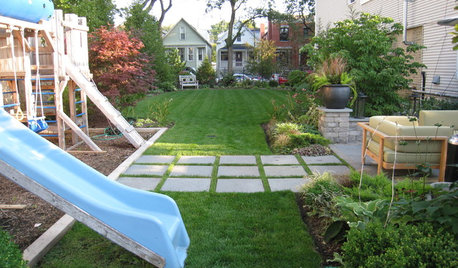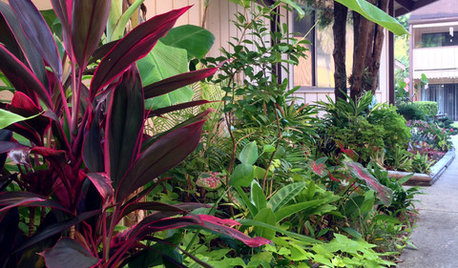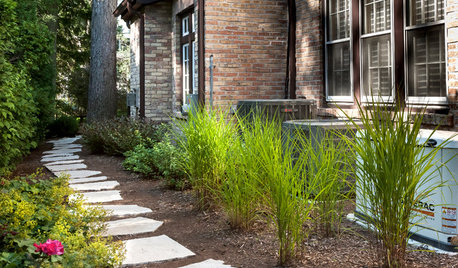Watermelon care
slowpoke_gardener
11 years ago
Related Stories

EDIBLE GARDENSSummer Crops: How to Grow Watermelons
You might not need as much space as you think to get this summer mainstay to spring up in your garden
Full Story
LIFE6 Tips for Teaching Your Kids to Be Good Neighbors
Everyone wins when your children learn to respect boundaries, get help when they need it and show others they care
Full Story
GARDENING GUIDESTexas Gardener's May Checklist
Be especially water wise this month as you sow seeds, tend to your lawn and plant edibles, grasses and flowers
Full Story
GARDENING AND LANDSCAPINGHow to Make a Pond
You can make an outdoor fish paradise of your own, for less than you might think. But you'll need this expert design wisdom
Full Story
PETSPet-Proofing Your Home: A Room-by-Room Guide
Not all pet dangers are obvious. Keep furry friends safe and sound by handling all of these potential hazards
Full Story
GARDENING GUIDESA Mom, a Garden and a Gift for the Neighbors
Gardening can be therapeutic in unexpected ways. See how one gardener found peace and purpose in a patch of Florida soil
Full Story
EDIBLE GARDENSHow to Grow Your Own Sweet Summer Crops
This guide will help any gardener get started on growing the freshest warm-season veggies and berries for summer
Full Story
GARDENING GUIDESVegetables and Flowers Mix in Beautiful Edible Gardens
Ornamentals, meet your edible garden mates. We know you'll get along just beautifully
Full Story
KITCHEN DESIGNKitchen of the Week: Red Energizes a Functional White Kitchen
A client’s roots in the Netherlands and desire for red countertops drive a unique design
Full Story
MOST POPULAR5 Ways to Hide That Big Air Conditioner in Your Yard
Don’t sweat that boxy A/C unit. Here’s how to place it out of sight and out of mind
Full StorySponsored
More Discussions







Okiedawn OK Zone 7
slowpoke_gardenerOriginal Author
Related Professionals
Deer Park Landscape Architects & Landscape Designers · Wixom Landscape Architects & Landscape Designers · Roxbury Crossing Landscape Architects & Landscape Designers · Lakeland Landscape Contractors · Bedford Heights Landscape Contractors · Brooklyn Park Landscape Contractors · North Potomac Landscape Contractors · Casselberry Landscape Contractors · Maple Heights Landscape Contractors · Blue Springs Decks, Patios & Outdoor Enclosures · Brentwood Decks, Patios & Outdoor Enclosures · Kernersville Decks, Patios & Outdoor Enclosures · Methuen Decks, Patios & Outdoor Enclosures · Troy Decks, Patios & Outdoor Enclosures · Wentzville Decks, Patios & Outdoor EnclosuresOkiedawn OK Zone 7